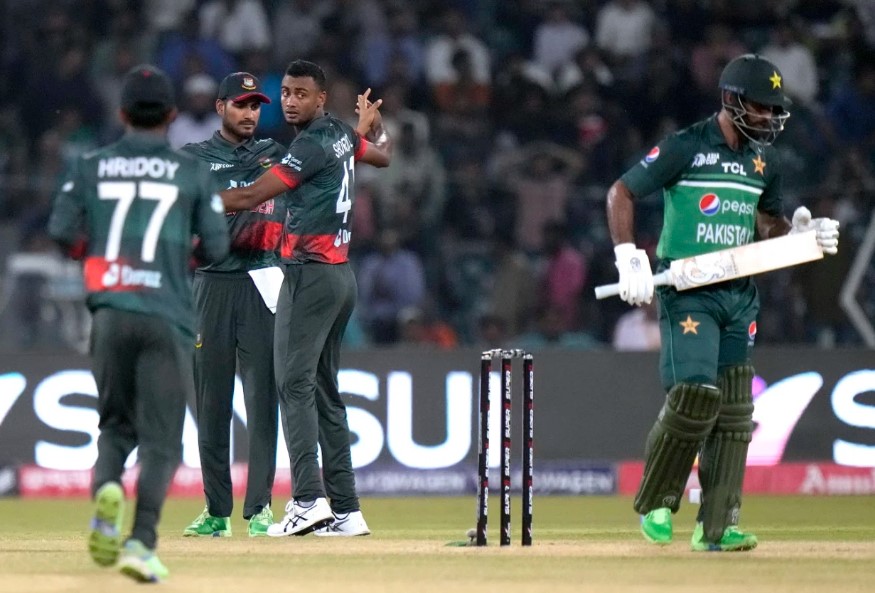Sabbir Rahman is a supreme talent, but he deserved his ban


A child is supposed to be mischievous, completely wrapped in
a bubble of flaws and misdemeanours. However, even in that bubble, there is
still a limit. If exceeded, the bubble bursts. The child is no longer seen in
that regard.
No, he’s not a child anymore—he is an offender.
For the first time, we tend to neglect it. Children, they
are after all, aren’t they? The second time, there is some verbal toughness
involved. The third time, however, the rod of chastisement becomes a necessity.
Sabbir Rahman is, of course, the child in question. The only
problem here is that he is not a child at all.
In the early stages of his career, he could have been
labelled as a toddler—and the Bangladesh Cricket Board actually gave him the
privileges that a young star should get. A lot of time and money was invested
in him, some of his offences were also overlooked.
During last year’s Bangladesh Premier League, Sabbir was
fined 13 lacs by the BCB, who never revealed the real cause for their decision,
perhaps such was the level of indecency that the board were ashamed to reveal
it. There were rumours that Sabbir invoked the wrath of the board by
entertaining female guests in his hotel room while the tournament was still
being played.
Sabbir, however, later denied those allegations by posting a
video on Facebook.
Nevertheless, whatever be the cause, that’s not the point.
The real issue here is that he did something that goes against the code of
conduct of Bangladesh cricket. Still, 13 lacs is not much for an international
player, so it was relatively just a warning for him.
However, he once again broke the rules—and, even worse,
showed no repentance for it.

He burst the bubble.
During a National Cricket League game against Rajshahi,
Sabbir Rahman physically assaulted a young fan, who wasn’t even an adult, for
apparently verbally abusing the player. The audacity of Rahman could be
deciphered from the fact that he actually asked for a break from the umpires
and went out of the playing field to hit the fan.
The incident took place somewhere near the side-screen. It
wasn’t a heat-of-the-moment sort of thing. No, it was much worse. It was a
well-orchestrated plan to hurt someone, almost like an underworld criminal seeking vengeance.
Had Sabbir stopped there, his punishment might have not been
so severe. However, he decided to make matters worse by threatening the match
referee against reporting the incident. He also misbehaved with the umpires in
that very game.
It was as though he was on a streak to be rampant and
exercise the pseudo sense of power that he believes he possesses.
Instead, however, he burst the bubble inside which he was living. As a result, he has crashed right on the ground, face first.
The saddest
part about this is not Sabbir losing 20 lacs or the money that he would have
earned had he not been sacked from the central contract. No, it’s far
beyond and far worse than just that.
When Sabbir bats, regardless of how many runs he scores, he
oozes a sense of elegance that we perhaps don’t see in any other Bangladeshi
player. The sheer technique and panache surrounding his game makes him an
invaluable asset to the team.
In short, he is a supreme talent—an uncut diamond—who could
lead the Bangladesh cricket team in the future years.
This incident, however, shrouds all those hopes with a
nebulous fog—and I, for one, really can’t see through it at this point. He has
all the talent in the world, which can make us hope that he will come back to
play in the national colours of Bangladesh.
However, we might always move on from the past, but the past
never really moves on from us—it always finds a way to creep into our lives.
Somewhere down the line, Sabbir might score a century to win
Bangladesh a crucial game. However, right after that, he could be taunted for
these offences that he has done. Even if he goes on to enjoy the best time of his life, he will always be reminded about these incidents by someone or
something—and how he reacts to them will define his career and, perhaps, his
life.
For now, we can only keep faith that Sabbir will learn from this and will metamorphose himself into a better person that knows how to keep his calm and behaves that a star of his calibre should.
We can only hope and
pray—because he is not just any random player, he is a tremendous talent, he is
Sabbir Rahman.




